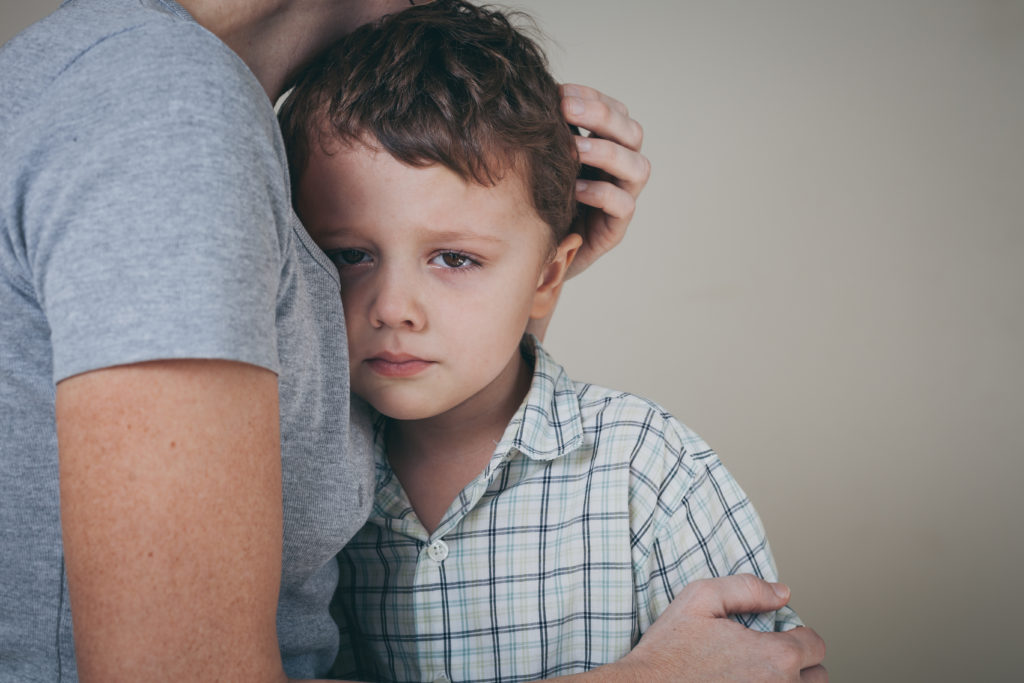Why Is Nurturing Your Childs Mental Health Post-Trauma Crucial?
Nurturing your child’s mental health post-trauma is essential. Trauma affects emotional well-being and cognitive function, requiring support. Therapy aids in processing emotions and develops coping strategies. Emotional healing in a supportive environment reduces anxiety, depression, and post-traumatic stress symptoms. Validation, communication, and empathy are critical for emotional recovery. Remember, children’s emotional needs are unique post-trauma, requiring safe spaces for expression. Creating a healing environment promotes well-being and resilience. Your role in their recovery journey is pivotal. Trust, safety, and understanding are key. Your child’s healing process deserves your attentive care.
Key Takeaways
- Nurturing aids emotional healing post-trauma.
- Builds resilience and coping skills.
- Fosters trust and security in children.
- Supports long-term psychological well-being.
- Enhances recovery and mental wellness.
Impact of Trauma on Child’s Mental Health

Experiencing trauma can greatly impact your child’s mental health, affecting their emotional well-being and cognitive functioning. It’s important to provide your child with the necessary therapy options and emotional support to navigate through these challenging times.
Therapy options such as cognitive-behavioral therapy (CBT) or play therapy can help your child process their emotions and develop coping strategies. These therapeutic approaches can assist in reducing anxiety, depression, and post-traumatic stress disorder symptoms.
In addition to therapy, emotional support plays a significant role in your child’s mental health recovery post-trauma. As a parent, offering a safe and comforting environment where your child feels heard and understood can make a notable difference.
Encouraging open communication, actively listening to their feelings, and validating their experiences can foster a sense of security and trust. Remember, your unwavering support and reassurance are essential for your child as they navigate their healing journey.
Emotional Needs Post-Trauma

Supporting your child’s emotional needs in the aftermath of trauma requires attentive and compassionate guidance from you as a parent. Emotional healing after a traumatic event is a complex journey that needs a supportive environment to foster recovery. Your child may experience a range of emotions such as fear, sadness, anger, or confusion, and it’s important to create a safe space where they can express these feelings without judgment.
To aid in emotional healing, validate your child’s emotions and reassure them that it’s normal to feel the way they do. Encourage open communication by actively listening to their thoughts and concerns. Providing a supportive environment involves showing empathy, patience, and understanding as your child navigates through their emotions post-trauma.
Remember that emotional healing takes time, and each child’s process is unique. By being a pillar of support and creating a nurturing atmosphere, you play a crucial role in helping your child cope and gradually move towards recovery.
Support and Care for Healing
You play an important role in offering support to your child as they navigate through the healing process post-trauma. Creating a safe and nurturing environment at home can greatly aid in their recovery.
Additionally, exploring professional therapy options can provide specialized care and guidance tailored to your child’s unique needs.
Importance of Support
During times of trauma, having a strong support system in place is essential for your child’s healing and overall mental well-being. Supportive relationships play a vital role in helping your child build emotional resilience and develop effective coping strategies.
When your child feels surrounded by caring and understanding individuals, it can greatly aid in their recovery process. Support can come from various sources, such as family members, friends, teachers, or mental health professionals. These individuals can provide comfort, guidance, and a listening ear for your child to express their feelings and fears.
Healing Environment at Home
Establishing a nurturing and healing environment at home is essential for your child’s recovery and emotional well-being following a traumatic experience. Creating a healing space where your child feels safe, loved, and supported is vital in their journey towards healing.
To build a supportive environment at home, guarantee open communication where your child feels comfortable expressing their feelings without judgment. Encourage activities that promote relaxation and positive emotions, such as art therapy, mindfulness exercises, or spending quality time together.
Designate a quiet and peaceful area in your home where your child can retreat when feeling overwhelmed. This healing space should be personalized to their preferences, filled with comforting items like stuffed animals, blankets, or favorite books.
Consistency and routine are key in providing stability for your child post-trauma. Maintain a predictable schedule that includes time for self-care, adequate rest, and nutritious meals.
Professional Therapy Options
Creating a nurturing environment at home is essential, but considering professional therapy options can further support your child’s healing journey post-trauma. Therapy options provided by trained professionals offer specialized support tailored to your child’s unique needs, facilitating their progress in coping with the effects of trauma. Seeking professional help is a pivotal step towards aiding your child in their healing process.
Professional therapy options encompass a range of approaches such as cognitive-behavioral therapy, play therapy, art therapy, or trauma-focused therapy. These therapies can help your child process their emotions, develop coping mechanisms, and gradually work through the traumatic experience.
The guidance and expertise of a therapist can greatly contribute to your child’s progress and overall well-being.
Through professional therapy, your child can learn to navigate their feelings, build resilience, and regain a sense of safety and security. Therapists create a safe space for your child to express themselves, explore their emotions, and gradually work towards healing.
Embracing professional therapy options can be a vital component in your child’s journey towards recovery and long-term mental well-being.
Understanding Long-Term Psychological Well-Being

You may notice that trauma can have a lasting impact on your child’s well-being, affecting their mental health in the long term.
Understanding this impact is vital in providing the necessary support and care for your child’s healing process.
Trauma’s Impact on Well-Being
After experiencing trauma, individuals often face long-term psychological challenges that can greatly impact their overall well-being. Coping mechanisms play an essential role in the recovery process post-trauma.
It’s normal to feel overwhelmed, anxious, or depressed after a traumatic event. Finding healthy ways to cope, such as talking to a trusted individual, engaging in self-care activities, or practicing mindfulness, can aid in emotional healing.
Therapy options are also important for addressing trauma’s impact on well-being. Seeking professional help, like counseling or therapy, can provide a safe space to process emotions, develop coping strategies, and work through the trauma.
Different types of therapy, such as cognitive-behavioral therapy (CBT) or eye movement desensitization and reprocessing (EMDR), can be effective in treating trauma-related symptoms and promoting healing.
Importance of Support
Support from understanding individuals can greatly contribute to long-term psychological well-being after experiencing trauma. When a child goes through a traumatic event, having a strong support system in place is vital for their recovery.
Emotional care plays a significant role in helping children navigate their feelings and emotions post-trauma. Support systems can include family members, friends, teachers, counselors, or mental health professionals who offer a safe space for the child to express themselves without judgment.
These individuals can provide comfort, validation, and reassurance, which are essential for rebuilding a sense of security and trust after a traumatic experience.
Navigating Through the Healing Process
As your child navigates through the healing process post-trauma, it’s important to provide a supportive and understanding environment for their emotional recovery. Encouraging self-care practices and engaging in healing activities can be beneficial during this challenging time.
Encourage your child to take time for themselves, whether it’s through relaxation techniques, physical exercise, or pursuing hobbies they enjoy. Vital reinforcement plays an essential role in their healing journey. Acknowledge their progress, no matter how small, and celebrate their resilience.
Coping strategies are essential tools for your child to manage their emotions effectively. Encourage open communication, allowing them to express their feelings without judgment. Help them develop healthy coping mechanisms like deep breathing exercises, mindfulness, or journaling. These strategies can empower your child to navigate through difficult emotions and build resilience.

Providing Necessary Post-Trauma Support
During this critical time of healing post-trauma, it’s essential to provide the necessary support for your child’s emotional well-being. Mental health plays an important role in your child’s recovery journey, and ensuring they’ve access to therapy options can greatly aid in their healing process.
Therapy provides a safe space for your child to express their emotions, fears, and concerns in a supportive environment.
Post-trauma, emotional support is essential for your child to navigate through their feelings and rebuild their sense of security and trust. As a parent, offering a listening ear, reassurance, and understanding can make a significant difference in your child’s recovery.
Encourage open communication and validate their emotions, letting them know that it’s okay to feel upset, scared, or confused.
Importance of Addressing Emotional Needs
Addressing your child’s emotional needs post-trauma is essential for their overall well-being and recovery journey. Emotional healing plays a pivotal role in fostering mental wellness after a traumatic experience. Understanding and acknowledging your child’s emotional state is vital in helping them navigate through the aftermath of trauma. By addressing their emotional needs, you provide them with the support and validation necessary for healing.
Emotional healing post-trauma involves creating a safe space for your child to express their feelings without judgment. Encouraging open communication and active listening can aid in their emotional recovery process. It’s important to reassure your child that their emotions are valid and that it’s okay to feel a range of feelings in response to the trauma they’ve experienced.
Children’s Recovery and Well-Being

Helping your child navigate their path to recovery and well-being after experiencing trauma requires a supportive and understanding approach. It’s vital to engage your child in therapeutic activities that can aid in their healing process. These activities, such as art therapy, music therapy, or play therapy, can provide a safe space for your child to express their emotions and work through their trauma in a constructive manner.
Parental guidance plays an important role in supporting your child’s recovery journey. By being present, actively listening, and offering comfort, you create a sense of security and trust that’s fundamental to their well-being.
Encouraging open communication and creating a nurturing environment at home can help your child feel safe and supported as they navigate their emotions post-trauma.
Crucial Role of Parental Nurturing
As a parent guiding your child through their recovery journey post-trauma, your nurturing presence and support are key factors in their healing process. Parental involvement plays an essential role in helping your child cope with the emotional aftermath of trauma. Your child looks to you for emotional support and stability during this challenging time.
By actively engaging with your child, listening to their feelings, and providing a safe space for them to express themselves, you’re fostering a sense of security and trust. Your reassurance and understanding can have a substantial impact on their mental health recovery. Remember, your child may be processing complex emotions and thoughts, and your patience and support are crucial in this process.
Offering consistent love and care, even amidst your own feelings of distress, demonstrates to your child that they aren’t alone in their journey to healing. Your nurturing presence can help them navigate their emotions and build resilience in the face of adversity.
Frequently Asked Questions
How Can Cultural Background Influence a Child’s Post-Trauma Recovery?
Cultural influences play a significant role in how a child copes with trauma. Family dynamics, traditions, and beliefs can shape their recovery process. Understanding these factors can help provide tailored support for their post-trauma mental health journey.
What Role Do Siblings Play in Supporting a Traumatized Child?
In supporting a traumatized child, siblings play a crucial role. Their presence and understanding can provide comfort, companionship, and a sense of security. This sibling support contributes to family dynamics, aiding in emotional healing and trauma recovery.
Are There Any Alternative Therapies That Can Aid in Healing?
To aid in healing post-trauma, consider alternative therapies like mindfulness, art, animal-assisted, and music therapy. These therapies can provide unique ways for your child to process emotions, express themselves, and find comfort and healing.
How Can Schools Contribute to a Child’s Mental Health After Trauma?
Your child’s school plays a crucial role in supporting their mental health post-trauma. Through community programs, counseling, peer support, and art therapy, schools can create a safe and nurturing environment that aids in your child’s healing process.
What Are Some Ways to Involve the Child in Their Own Healing Process?
To involve the child in their healing after trauma, encourage their participation in therapy. Engage them in art or play therapy sessions where they can express themselves comfortably. This involvement empowers them to take an active role in their recovery journey.
Conclusion
Remember, your child’s mental health post-trauma is vital. By providing support, understanding, and nurturing care, you can help them navigate through the healing process and guarantee their long-term well-being.
Addressing their emotional needs and providing necessary support will play a pivotal role in their recovery.
Remember, you aren’t alone in this journey, and with your love and guidance, your child can heal and thrive.

Hey there! 👋 I’m a proud mom and passionate writer, sharing my parenting journey. 📝 Join me as I navigate the ups and downs of motherhood, offering tips, advice, and a sprinkle of humor along the way. 🌟







